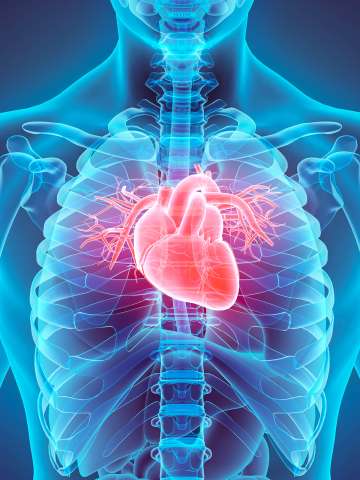The Role of Cardiology in Preventative Wellness and Health Solutions
Cardiology is increasingly acknowledged for its crucial role in preventative wellness and wellness services. By highlighting aggressive methods, cardiologists intend to decrease the occurrence of heart diseases. This strategy incorporates risk assessments, way of living adjustments, and regular screenings. Via these efforts, individuals are encouraged to take control of their heart health and wellness. Nonetheless, the assimilation of modern technology and cooperation with various other health care carriers raises crucial inquiries regarding the future of preventative treatment. What might this advancement entail?

Comprehending Preventative Cardiology
Comprehending preventative cardiology entails acknowledging its important role in lowering cardio condition risk with aggressive actions. This branch of medication emphasizes the significance of lifestyle modifications, consisting of stress, diet plan, and workout management, to avoid heart-related issues prior to they arise. It supports for regular wellness screenings and education and learning to equip people in making informed health and wellness choices.Preventative cardiology also incorporates the recognition of risk variables such as high blood pressure, diabetes, and high cholesterol, urging people to take on much healthier habits - Cardiology care. By concentrating on prevention rather than response, this method not only enhances individual wellness results yet also reduces the overall concern on medical care systems. Additionally, it advertises collaboration amongst health care areas, clients, and companies, cultivating a holistic method to heart health. Inevitably, understanding preventative cardiology inspires a shift in the direction of a positive way of thinking, focusing on long-term health and wellness
Threat Assessment and Administration
Threat assessment is necessary in recognizing cardiovascular threats that can bring about significant health and wellness problems. Reliable management of these dangers typically involves carrying out way of living adjustment methods, such as boosted diet regimen and enhanced exercise. By understanding and addressing these factors, people can considerably minimize their probability of creating heart diseases.
Identifying Cardiovascular Dangers
Various aspects add to cardio health and wellness, determining cardio threats is crucial for reliable avoidance and administration. Cardiovascular threat analysis includes examining different components, consisting of household history, age, sex, and way of life habits such as smoking and physical lack of exercise. Furthermore, health problems like high blood pressure, diabetic issues, and high cholesterol greatly affect a person's threat account. Medical care specialists utilize tools such as danger calculators and biomarker examinations to quantify these dangers and stratify patients accordingly. Early recognition enables targeted treatments, guiding people toward proper monitoring approaches. By acknowledging these threats, cardiologists can work together with clients to create tailored plans that highlight monitoring and aggressive care, inevitably minimizing the chance of unfavorable cardiovascular occasions.
Way Of Living Modification Techniques
Effective way of life alteration approaches play a crucial function in handling cardio health and reducing associated risks. These techniques incorporate nutritional modifications, increased exercise, and cigarette smoking cessation. A heart-healthy diet regimen rich in fruits, veggies, entire grains, and lean healthy proteins can substantially decrease cholesterol levels and blood pressure. Regular physical activity, such as cardiovascular workouts, strengthens the heart and boosts flow. In addition, stopping smoking cigarettes reduces the risk of heart problem and improves overall wellness. Health care experts commonly utilize risk evaluation tools to tailor these modifications to specific demands effectively. By integrating way of life become routine treatment, cardiologists can empower patients to organize their heart health and wellness, eventually resulting in boosted outcomes and lowered medical care expenses.
Way Of Life Alterations for Heart Wellness
To keep excellent heart wellness, individuals should embrace a variety of way of living modifications that significantly decrease the likelihood of cardio conditions. A well balanced diet plan abundant in fruits, vegetables, whole grains, and lean proteins is necessary. Reducing hydrogenated fats, trans fats, and salt intake can significantly reduce cholesterol levels and high blood pressure. Normal physical task, such as vigorous walking or biking for at least 150 minutes each week, likewise plays a significant duty in improving and strengthening the heart circulation.Additionally, managing tension via strategies like mindfulness and reflection can have a positive effect on heart health. Avoiding cigarette products and limiting alcohol consumption further add to a much healthier cardiovascular system. Maintaining a healthy weight is critical, as excessive weight is a significant threat element for heart problem. By incorporating these lifestyle changes, people can foster not only their heart health and wellness but also their general health, causing a more energetic and vivid life.
The Significance of Normal Testings
Along with way of living adjustments, normal screenings play an essential duty in maintaining heart health and stopping heart diseases. These analyses are substantial for identifying risk factors such as hypertension, high cholesterol, and diabetes, which can result in significant problems if left uncontrolled. Cardiologists recommend regular assessments to keep track of heart function and detect problems early, enabling timely intervention.Screenings, which may include blood tests, Bonuses echocardiograms, and electrocardiograms, give crucial information for tailored treatment plans. This proactive method empowers individuals to make enlightened decisions regarding their health, enhancing total health. In addition, normal examinations promote a more powerful doctor-patient connection, motivating open dialogue concerning heart health and wellness issues.
Integrating Innovation in Precautionary Care
Embracing technology has actually reinvented preventative treatment in cardiology, using ingenious tools that boost client surveillance and interaction. Wearable devices, such as smartwatches and fitness trackers, make it possible for people to monitor their heart price, task levels, and total health metrics in real-time. These devices not just provide prompt responses yet likewise facilitate information sharing with doctor, enabling timely treatments when necessary.Additionally, telemedicine has become a popular attribute in cardiology, allowing remote appointments and follow-ups. This accessibility ensures that patients can get treatment without the barriers of traveling and time constraints. Mobile health and wellness applications more support preventative steps by supplying customized understandings and reminders for medication adherence, way of living modifications, and set up testings.
Client Education And Learning and Empowerment
Empowerment through education is essential in the domain of preventative cardiology, as informed clients are more probable to engage in positive wellness habits. By comprehending their cardio health, individuals can make informed choices regarding way of life adjustments and adherence to therapy strategies. Educational efforts, consisting of workshops, educational handouts, and online sources, offer to enhance individual knowledge concerning threat aspects such as hypertension, cholesterol degrees, and the importance of regular exercise.Moreover, empowering people cultivates a collaborative approach to wellness monitoring. When people know their conditions and the effects of their choices, they are more probable to participate in conversations with medical care providers, bring about customized treatment techniques. This collaboration not just promotes liability but additionally improves inspiration for keeping a heart-healthy way of living (Cardiology care). Inevitably, individual education and learning is a foundation of preventative cardiology, outfitting people with the devices required to organize their cardiovascular health and wellness and health
Teaming up With Other Healthcare Professionals
Effective person education and learning prepares for collective initiatives among medical care experts in the area of preventative cardiology. Cardiologists, health care doctors, nutritional experts, and psychological wellness experts must work in harmony to enhance client end results. By sharing understandings and methods, these professionals can create thorough treatment strategies that attend to both psychological and physical elements of heart health.Regular interdisciplinary meetings foster interaction, making certain that all group members are informed concerning person progress and obstacles. This collaboration helps with prompt interventions and adjustments to therapy plans, boosting the efficiency of preventative measures.Furthermore, integrating technology, such as common digital health and wellness documents, boosts data availability and simplifies coordination efforts. This all natural strategy not only boosts person adherence to lifestyle modifications but additionally empowers people to take cost of their cardiovascular health and wellness. Inevitably, collaboration among medical care experts is vital in promoting an aggressive strategy to cardiovascular disease avoidance.
Frequently Asked Inquiries
What Is the Difference Between Cardiology and General Health And Wellness Treatment?
Cardiology specializes in detecting and treating heart-related problems, while general health care encompasses a wider series of medical services resolving different health problems - Dr Garcia. Each plays a vital duty in maintaining total wellness and wellness
Just how Commonly Should I See a Cardiologist for Preventive Treatment?
The frequency of cardiologist check outs for preventative care differs based on private risk variables. Normally, annual appointments are advised for those with present conditions, while others may need much less regular check-ups based upon general heart health and wellness.
Can Anxiety Impact My Heart Health And Wellness Considerably?
Stress can considerably impact heart health click over here now and wellness by adding Full Report to high blood pressure, inflammation, and undesirable lifestyle selections. Individuals experiencing persistent stress may go to enhanced threat for cardiovascular issues, demanding efficient stress administration approaches for much better heart wellness.
Exist Certain Heart Disease I Should Recognize?
Individuals must be aware of conditions like hypertension, coronary artery condition, cardiac arrest, arrhythmias, and valvular heart disease. Acknowledging these problems early can result in far better administration and enhanced total heart wellness results.

What Are the Costs Connected With Preventative Cardiology Services?
The prices connected with preventative cardiology solutions can vary substantially. Variables such as area, kind of solution, and insurance policy protection impact general expenses, making it crucial for people to look for comprehensive information details to their conditions. With these initiatives, patients are motivated to take control of their heart health and wellness. It promotes for routine health testings and education and learning to encourage people in making educated health choices.Preventative cardiology additionally includes the recognition of danger elements such as high blood pressure, diabetes mellitus, and high cholesterol, urging people to embrace healthier routines. In addition, it advertises collaboration amongst healthcare neighborhoods, companies, and clients, fostering an alternative strategy to heart health. Normal physical task, such as brisk walking or biking for at least 150 minutes per week, additionally plays a significant function in reinforcing the heart and improving circulation.Additionally, managing tension with techniques like mindfulness and reflection can have a favorable influence on heart health. Cardiology specializes in diagnosing and treating heart-related conditions, while basic health and wellness treatment incorporates a wider array of clinical services addressing various health problems.